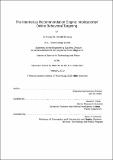| dc.contributor.advisor | David D. Clark. | en_US |
| dc.contributor.author | Smith-Grieco, Anthony Nicoll | en_US |
| dc.contributor.other | Massachusetts Institute of Technology. Technology and Policy Program. | en_US |
| dc.date.accessioned | 2010-10-29T13:52:33Z | |
| dc.date.available | 2010-10-29T13:52:33Z | |
| dc.date.copyright | 2010 | en_US |
| dc.date.issued | 2010 | en_US |
| dc.identifier.uri | http://hdl.handle.net/1721.1/59567 | |
| dc.description | Thesis (S.M. in Technology and Policy)--Massachusetts Institute of Technology, Engineering Systems Division, 2010. | en_US |
| dc.description | This electronic version was submitted by the student author. The certified thesis is available in the Institute Archives and Special Collections. | en_US |
| dc.description | Cataloged from student submitted PDF version of thesis. | en_US |
| dc.description | Includes bibliographical references (p. 70-72). | en_US |
| dc.description.abstract | This thesis discusses the economic implications of Internet behavioral advertising, which targets ads to individuals based on extensive detailed data about the specific websites users have visited. Previous literature on behavioral advertising has focused almost exclusively on privacy issues; there has been less study of how it might affect industry structure. This thesis examines which parties in the online advertising value chain would benefit the most from the demand for detailed behavioral data; in particular, it examines whether aggregators (such as advertising networks) that track behavior across a large number of websites would derive the greatest benefit. Qualitative stakeholder analysis is used to identify the strengths and weaknesses of several categories of actors: advertisers, advertising agencies, publishers, advertising networks, advertising exchanges, Internet service providers, and users. Advertising agencies might attempt to bypass networks and work directly with publishers, becoming aggregators in their own right. Publishers might need to become interactive "information experiences" in order to collect valuable behavioral data. Users might demand more transparency about what is happening with their data, or even more control over the data collection process. Overall, agencies, networks, and advertising exchanges appear to be in the best position; publishers are faced with a harder task. Furthermore, behavioral targeting may not result in a dramatic increase in overall online advertising spending. | en_US |
| dc.description.statementofresponsibility | by Anthony N. Smith-Grieco. | en_US |
| dc.format.extent | 72 p. | en_US |
| dc.language.iso | eng | en_US |
| dc.publisher | Massachusetts Institute of Technology | en_US |
| dc.rights | M.I.T. theses are protected by
copyright. They may be viewed from this source for any purpose, but
reproduction or distribution in any format is prohibited without written
permission. See provided URL for inquiries about permission. | en_US |
| dc.rights.uri | http://dspace.mit.edu/handle/1721.1/7582 | en_US |
| dc.subject | Engineering Systems Division. | en_US |
| dc.subject | Technology and Policy Program. | en_US |
| dc.title | The Internet as recommendation engine : implications of online behavioral targeting | en_US |
| dc.type | Thesis | en_US |
| dc.description.degree | S.M.in Technology and Policy | en_US |
| dc.contributor.department | Massachusetts Institute of Technology. Engineering Systems Division | |
| dc.identifier.oclc | 668246989 | en_US |
